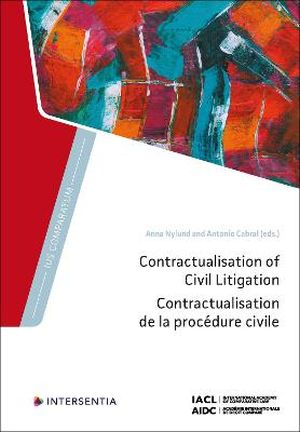
Procedural agreements constitute a nebulous concept situated at the intersection of civil procedure law and private law, between the public sphere of the formal justice system and the private sphere of contract law. This book employs a broad definition of procedural contracts: what matters is not the legal categorisations but the procedural effects of the contract or agreement. While procedural agreements were earlier rejected with few exceptions, notably choice-of-court and arbitration agreements, a shift towards more permissive views has occurred in recent years.
Based on reports covering 20 jurisdictions in the Americas, Asia, and Europe, this book examines procedural contracts, the variation in the extent to which they are given procedural effects, the types of issues that the parties are allowed to agree on, the limits of such agreements, and the manifest and tacit arguments for and against them.
The special national reports discuss the legal framework of such contracts, be it statutory law, case law or general principles of law, and how procedural contracts are understood in legal doctrine. Many of them address the issue of whether there is a gap between the general, often restrictive, attitude towards procedural agreements and legal practice that recognises, at least some, procedural contracts beyond jurisdiction and arbitration clauses.
Common types of procedural contracts, specifically, jurisdictions agreements, agreements on mediation, interim measures, the form of proceedings, costs, and appeals, are examined. Moreover, this book also discusses agreements relating to evidence, such as the burden and the standard of proof, access to evidence and the appointment of experts. Some of the reports identify additional types of procedural agreements.
The special national reports shed light on the limits to procedural agreements, particularly those aiming to protect weaker parties, such as consumers and tenants, and third-party and public interests, and those posed by constitutional principles, notably access to court and fair trial rights. The rapporteurs also assess whether and how attitudes and practices related to procedural agreements are shifting.
In addition to a comparative overview, the general report traces the nexus between the underlying civil procedure system, the beliefs it is embedded within, the arguments used to support or oppose such agreements, and the rules and practices regarding procedural agreements. The links between the contractualisation of civil proceedings and the related phenomena of ‘consensualisation’, flexibilisation and fragmentation are also explored.